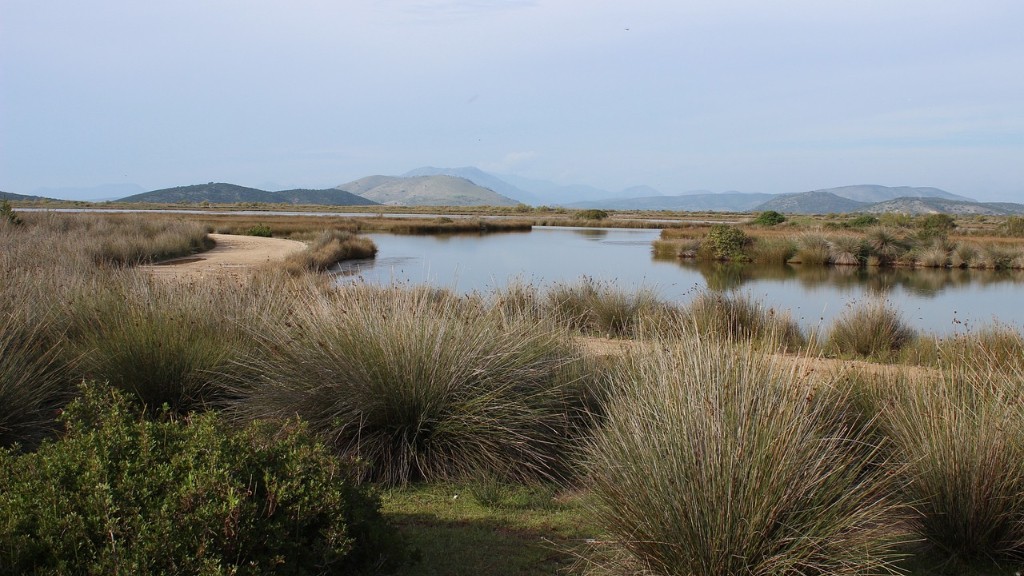The Yangtze River and its Impact on China
One of the world’s oldest rivers, the Yangtze River, is also one of the most important and influential rivers in Chinese history. Spanning hundreds of miles, the Yangtze is estimated to have been around for about three million years and is the third-longest river in the world.
The river played an essential role in the everyday lives of those living in the basins, who relied on its waters for fishing, irrigation, and transportation. The locks and dikes of the Yangtze enabled goods to be transported efficiently and quickly, while its abundant fish were a reliable source of protein.
But, perhaps the most important contribution of the Yangtze River was to the political and economical success of China. It is considered by many to be the birthplace of Chinese civilization and has been strategically located at the core of China’s economy ever since. During the 19th century, the Yangtze was a key trade route for goods, connecting vast amounts of goods from the interior of China to the ports on the sea coast.
It was also the site of some of the most important battles in Chinese history and even today remains a source of vast military significance due to its location and resources. Throughout the years, different Chinese dynasties have used the Yangtze to build their empires and strengthen their control.
As surrounding settlements continued to grow and bring more resources from the basin’s surrounding areas, the threats of flooding, pollution and loss of biodiversity arose, leading to government policies and initiatives aimed at preserving the natural environment of the Yangtze. Recently, there has been a lot of research on how to best protect the river’s wildlife and maintain the quality of its water.
While the Yangtze is still the most important and influential river in China, its current importance has waned in comparison with the past. Nevertheless, the importance of its historical and political contributions to the development of China cannot be overstated and the Yangtze River continues to be a symbol of its resilience.
Environmental Impact of the River
The Yangtze River has a major impact on China’s environment. The wetlands and forests which line the river are interdependent for the survival and biodiversity of the flora and fauna of the region. The river is also home to numerous species of endangered fish, including the critically endangered Chinese sturgeon and the Yangtze finless porpoise.
However, over the last few decades, various human activities have caused an unprecedented degradation to the river’s ecosystem. These activities have included the discharge of agricultural, industrial and domestic waste, overfishing and illegal sand extraction.
In addition, the construction of dikes and locks on the river have caused a decrease in sediment, leading to changes in the river’s flow and a decrease in species’ habitat. As a result, many of the species living in the river are threatened and their populations have declined dramatically.
Various initiatives have been undertaken to protect and restore the Yangtze River’s natural environment. One example is the Sub-river Basin Nature Conservation Program which focuses on habitat restructuring, wetland protection and river regulation. This program also aims to reduce pollutants from nearby factories and to restore riverbanks.
Other efforts have been put into effect in order to protect the endangered species in the river. Recently, the Yangtze Finless Porpoise Rescue and Conservation Center was established. The center is tasked with protecting the porpoise and its habitat and educating people about their importance.
Effects of Climate Change on the Yangtze River
Climate change is having a dramatic effect on the Yangtze River. As temperatures rise, the high levels of runoff and evaporation result in the river’s water levels rising or falling dramatically with each season. This has caused flooding in areas along the river, leading to significant economic and social disruption.
In addition, the lack of water due to the decrease in precipitation has caused the river to become shallower and more turbulent, resulting in decreased navigation and shipping. This has had a drastic effect on the economy of China, particularly on the fishing and agricultural industry that depend on the river.
Various climate change adaptation strategies have been proposed in order to reduce the impacts of climate change on the river. These strategies include improving flood control measures, water conservation and increasing the vegetation cover of the riverbanks.
In addition, there have been efforts to encourage sustainable practices from local communities in order to reduce pollution, such as reducing fertilizer use, cleaning up the riverbanks, and reducing agricultural runoff.
Influence of Internationalization
As China became increasingly internationalized, the Yangtze River became an important symbol of the country’s rising power. As a result, the river was named “China’s National River” and underwent a massive modernization project. This project included the construction of three large dams for hydropower and irrigation, as well as the construction of a deep-water port.
The river also became a symbol of China’s economic development and central to the government’s efforts to open up the country to international trade. The Yangtze was a crucial artery in the transportation of goods from the interior of China to the cities along the coast and was considered the “lifeblood” of the country.
The internationalization project also brought with it many environmental consequences. The construction of the dams, in particular, led to the displacement of millions of people and the destruction of habitats of numerous species in the river.
Despite the negative impacts of the modernization of the Yangtze, there have been efforts to protect and restore the river. Recently, the Chinese government implemented the Three Rivers and Three Gorges Project, which seeks to protect the river’s ecosystem, reduce the risk of flooding, and improve navigation safety.
Comparison with Other Rivers
The Yangtze River is the longest river in China and one of the longest in the world. It is more than 3,900 miles long, serving a population of more than 900 million people. The Yangtze is considered one of the most influential rivers in Chinese history, in large part due to its strategic location.
In comparison to other rivers around the world, the Yangtze is significantly larger and more influential. The Nile River, for example, is the longest river in the world, with a length of more than 4,100 miles. But, its influence is limited to just a few countries in the Middle East and North Africa.
Likewise, the Amazon River is the second longest river in the world and is often referred to as the “river sea” due to its vast size. However, its impact on the lives and livelihoods of people in the basin is much less significant compared to the Yangtze.
Thus, the Yangtze is unique in its immense contribution to the history and development of China, as well as its vast impact on the lives and livelihoods of those living in its basin. The river has been an important site of political power since ancient times, and its presence continues to be felt today.
Current Conditions of the Yangtze River
Today, the Yangtze River continues to be a major source of economic and political power. It is, however, faced with numerous environmental issues. These include air pollution, water pollution, sediment buildup and habitat destruction.
These issues have led to the degradation of the river’s ecosystem and the loss of species in the basin. As a result, numerous attempts have been made to reverse the damage, including the implementation of environmental protection strategies and river pollution control regulations.
In addition, the river continues to serve as an important transportation route, connecting vast amounts of goods from the interior of China to the ports on the sea coast. Despite this, its importance has waned in recent years due to the rise of other modes of transportation, such as roads and railways.
Overall, the Yangtze River is an important and influential river in China, and its presence is still very much felt in the country. Despite the challenges it faces, the river continues to be a source of cultural and economic power.
Cultural Significance of the Yangtze
The Yangtze River is deeply embedded in the culture of China and has been for centuries. The river is discussed in numerous works of Chinese literature, music and art, and is seen as a symbol of resilience and strength.
The river has also been the site of numerous religious rituals and festivals, as well as important historical events, such as the battles that took place during the Chinese Civil War.
In addition, the Yangtze continues to be a popular destination for tourists looking to experience the beauty of the river and its surroundings. Visitors can explore the riverbanks, the rocky gorges, and the numerous historical sites located along the river.
Thus, the Yangtze River has been an important part of Chinese culture for centuries and its cultural significance is still felt today. From its importance in everyday life to the battles that have been fought along its banks, the Yangtze River will continue to be an integral part of Chinese history.
Economic Significance of the Yangtze River
The Yangtze River is an essential part of the Chinese economy. The river has served as an important trade route since the 19th century, connecting vast amounts of goods from the interior of China to the ports on the sea coast. This role has only become more significant since the rise of international commerce.
More recently, the Yangtze has seen a rapid growth in the number of large-scale development projects taking place along the river. These include hydropower dams, industrial parks, new housing developments, and luxury tourist resorts.
These projects have had a significant impact on the economy of the region, providing employment to millions of people and creating new business opportunities. They also have enabled the government to make technological advances and bring much needed infrastructure and services to the area.
Overall, the Yangtze River is an essential part of the Chinese economy, and its role is only likely to become more important in the future. The river’s great economic potential will continue to be tapped into, with new opportunities emerging each day.





